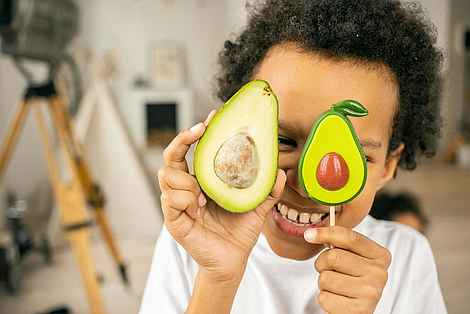It has long been known that a long-term increase in sugar consumption is harmful to health. This includes not only diseases such as obesity, type 2 diabetes and cardiovascular diseases, but also neurological diseases such as dementia and strokes. The blood sugar level is kept stable within narrow limits through fine regulation. However, if it is above 100 mg/dl on an empty stomach, the American Diabetes Association defines this as elevated, pre-diabetic blood sugar levels. Permanently elevated levels damage the cerebral vessels and result in deposits. If the vessels are constricted, the supply of blood to the brain cells is impaired [1]. At the same time, there is evidence that once established in childhood and adolescence, dietary patterns remain relatively stable. The food preferences developed in infancy play a decisive role in further development and general health into adulthood [2].
A study by the Max Rubner Institute shows that children up to the age of five in Germany consume far too many unhealthy foods such as sweets and soft drinks. The data was collected as part of the Children's Nutrition Study to Record Food Consumption (KiESEL) between 2014 and 2017 [2]. The eating behaviour of 860 children, which parents recorded with the help of food logs, was evaluated. In addition to pure sugar, the food group of unfavourable foods included fruit-based products, confectionery, cakes, sugar-sweetened drinks, sweet desserts, sugary breakfast cereals and sweetened dairy products. Excessive consumption of these products was already apparent at the age of two and became even more pronounced at the age of three. This was more pronounced in boys than in girls. According to the World Health Organisation, the recommended maximum amount of free sugar is ten energy per cent (10 E%), which corresponds to around 30 g of sugar per day. This was exceeded even more in pre-school children with 17-18 E% than in small children with 12 E%.
Various aspects favour detrimental eating behaviour: Firstly, sugar is contained in many processed foods and is used by food manufacturers as an inexpensive flavour enhancer and preservative. So-called "children's foods" in particular often have a high sugar content, which is not immediately obvious to many parents due to the different names of sugar. Fruit snacks for children, for example, are also real sugar bombs. These products contain a lot of fructose, which has just as negative an effect on health as normal sugar [3]. On the other hand, children have a lower perception of sweetness, so that they need around 40% more sugar to taste the same "sweetness" as an adult [4]. Once the body gets used to the sweet taste, it demands more and more of it. Unlike fat or protein, sugar has an addictive effect, as the "feel-good hormone" dopamine is released in the brain when sugar is consumed – a state that we want to achieve again and again and leads to a craving for sugar. This is reinforced by signals from the gut to the brain, which also demand more sugar. What is alarming is that even small amounts of sugar trigger these reactions [1].
If you prepare meals yourself on a daily basis, sugar can be consciously dosed and, above all, reduced. If there is not much time to cook, simple, quick meals and snacks such as a fruit plate or vegetable sticks can be offered. The use of ready-made products can also be reduced by planning ahead and cooking inadvance.
Even though the body can produce sugar itself from complex carbohydrates such as wholemeal products and potatoes and does not really need pure sugar, it is not necessary to do without it completely. While sweetness used to be a sign of nutritious food, which was life-saving in times of hunger, today the focus is on the sense of well-being conveyed by sweetness. Especially at festive times such as Christmas, snacking on sweets also contributes to a cosy atmosphere. So the sugar debate is not about a complete ban, but ultimately about finding the right balance.
Bibliography
[1] German Society of Neurology (2024): "World Brain Day 2024: Too much sugar salts away brain health"https://dgn.org/artikel/world-brain-day-2024-zu-viel-zucker-versalzt-die-hirngesundheit, accessed 25/09/2024
[2] Spiegler C, Jansen S, Burgard L, Wittig F, Brettschneider AK, Schlune A, Heuer T, Straßburg A, Roser S, Storcksdieck Genannt Bonsmann S, Ensenauer R (2024): "Unfavourable food consumption in children up to school entry age: results from the nationwide German KiESEL study" Front. Nutr. 11:1335934. doi: 10.3389/fnut.2024.1335934
[3] Foodwatch (2024): "foodwatch market check: children's fruit snacks mostly high in sugar"https://www.foodwatch.org/de/foodwatch-marktcheck-kinder-fruchtsnacks-meist-stark-ueberzuckert, retrieved on 01/10/2024
[4] Petty S, Salame C, Mennella JA, Pepino MY (2020): "Relationship between Sucrose Taste Detection Thresholds and Preferences in Children, Adolescents, and Adults" Nutrients. 12(7):1918. https://doi.org/10.3390/nu12071918
